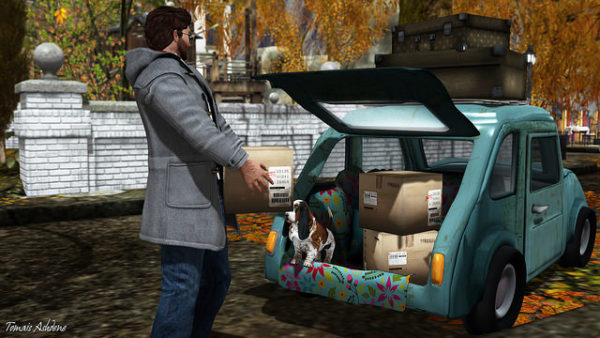
Whether it’s across town or to another state, moving at some point is a fact of life and always a challenge. Since I moved to Nashville in 1995, I’ve been through 4 moves…guess that averages out to about 1 every 4 years for me. Since I despise moving so much, I’ve always tried to keep it to a minimum. But through the pains of life comes knowledge, so in this post I want to share some things that will help ease your transition in the form of a reminders checklist!
1) Have a plan: A couple of months out, make a budget, and save as much as you can to cover expenses. House/apartment shop, and have your new place lined up. Then choose the date of your move.
2) After you’ve signed the lease on (or bought) your new place, get the key, set up all utilities before you move in, do any painting, repairs, etc.
3) Choose, book, remind, and coordinate the movers (if you plan to use one), or schedule reliable friends and a truck. If using a moving company, try to book your move on a Mon.-Thur. so you may be able to get a lower price than a weekend move.
4) After your new residence is sure/secure, change addresses with any person or company sending you mail. Do as many online as possible, then others by phone. Examples: friends & family, work, magazines to which you’re subscribed, credit cards, financial planner, car loan payment, insurances, the IRS (form 8822), Social Security office, internet service provider, college alumni associations, cell phone service, Motor Vehicle Bureau for your state, voter registration…
5) Fill out/submit the online change of address form to the Post Office.
6) Give notice to your [homeowners or renters] insurance company to switch your coverage to the new place on the date you move in.
7) Get moving boxes (and packing tape). Check paper-only/recycling dumpsters behind large stores or places of business before buying boxes. Ask first.
8) Go through all your belongings. Sell, give away, trash, or donate as many things as you can. Less stuff means less to pack, move, and unpack!
9) Get crackin’ on some packin’. Plan to have it all done the night before the move (except for your last minute items). With a thick black marker, label your boxes by the room they go in. Use as many items as a box (e.g., laundry baskets, waste baskets, milk crates on hand, luggage, etc.) as you can to conserve space.
10) The morning of the move, pack your last minute things, help the movers move some of your more fragile things to the truck, and load any items you’d rather transport yourself into your car (I always move my component stereo system). At your new place, let the movers know to set boxes as labeled in the respective rooms. Then be unpacking kitchen, bathroom, and bedroom items while the movers are working.
11) Save all moving related receipts (including your donations), and log your mileage between your old place and the new so you can write them off on your taxes (unless your new company is paying for the move!)
12) If need be, choose a new primary care doctor, dentist, bank, church, etc.
Like many things, with a little planning and a checklist, you can make your move go more smoothly and be less stressful.
What other tips would you add? Comment in the “Start the Discussion” blank below.
Looking for a new job? Want to get what you want fast? Check out my book, Here Today, Hired Tomorrow (kurtkirton.com/hthtbook), and subscribe to my blog (kurtkirton.com) for free advice on your job search.
